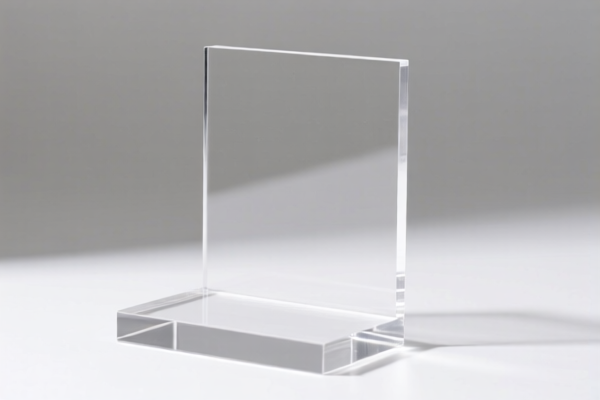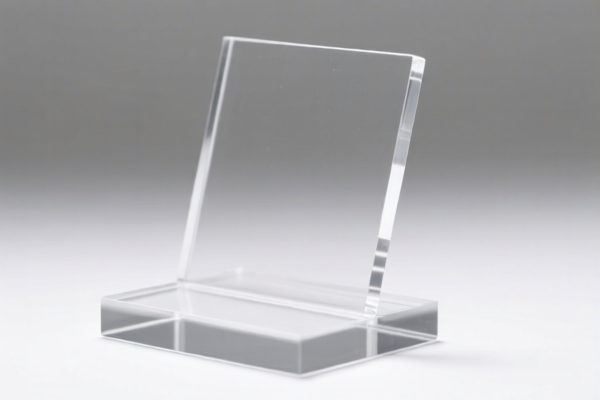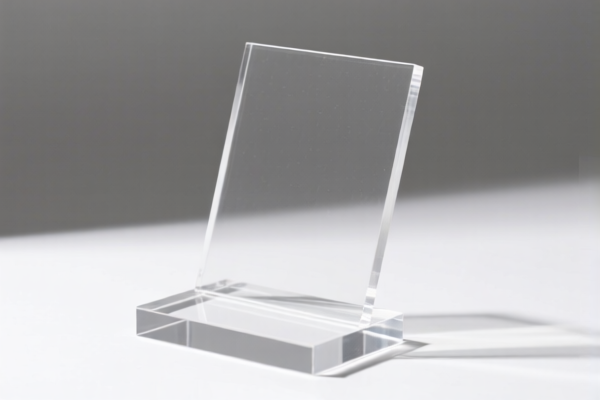| HS Code | Official Doc | Tariff Rate | Origin | Destination | Effective Date |
|---|---|---|---|---|---|
| 3906902000 | Doc | 61.3% | CN | US | 2025-05-12 |
| 3926909989 | Doc | 42.8% | CN | US | 2025-05-12 |
| 4820900000 | Doc | 55.0% | CN | US | 2025-05-12 |




Declaration Analysis: Acrylic Book Stands - HS Code Breakdown & Customs Considerations
This analysis details the HS codes provided for your declared "Acrylic Book Stands," outlining potential classifications, tax implications, and important considerations for customs clearance.
Understanding HS Codes
The Harmonized System (HS) Code is a globally standardized system of names and numbers used to classify traded products. It's crucial for determining tariffs, regulations, and statistical tracking. Here's a breakdown of each code provided, along with potential implications:
1. HS Code: 3906.90.20.00 – Acrylic Polymers in Primary Forms
- Chapter 39: Plastics and articles thereof. This indicates the product is fundamentally made of plastic.
- 3906: Polymers in primary forms (e.g., pellets, granules, powders). This suggests the material is unprocessed acrylic, potentially used as a raw material for manufacturing.
- 3906.90: Other polymers. This narrows down the type of acrylic polymer.
-
3906.90.20.00: Specifically, other acrylic polymers. This is a very specific classification.
- Tax Implications:
- Basic Duty: 6.3%
- Additional Duty: 25.0% (currently) / 30.0% (after April 2, 2025)
- Total Tax: 61.3%
- Considerations: This code is likely applicable if you are importing raw acrylic material intended for manufacturing book stands. If the material is already formed into a specific shape (even if unfinished), another code may be more appropriate.
- Tax Implications:
2. HS Code: 3926.90.99.89 – Other articles of plastics and articles of other materials
- Chapter 39: Plastics and articles thereof. Again, indicating a plastic-based product.
- 3926: Other articles of plastics and articles of other materials. This is a broad category for finished or semi-finished plastic products.
- 3926.90: Other articles.
-
3926.90.99.89: Other, other. This is a very general "catch-all" category within the broader 3926.90 classification.
- Tax Implications:
- Basic Duty: 5.3%
- Additional Duty: 7.5% (currently) / 30.0% (after April 2, 2025)
- Total Tax: 42.8%
- Considerations: This code is suitable for finished acrylic book stands. However, because it's a broad category, customs officials may request more detailed information to confirm the correct classification. Providing clear product specifications and images is crucial.
- Tax Implications:
3. HS Code: 4820.90.00.00 – Registers, account books, notebooks, etc.
- Chapter 48: Manufactured paper articles. This suggests the product is primarily made of paper.
- 4820: Registers, account books, notebooks, order books, etc.
-
4820.90.00.00: Other. This is a broad category for paper-based stationery items.
- Tax Implications:
- Basic Duty: 0.0%
- Additional Duty: 25.0% (currently) / 30.0% (after April 2, 2025)
- Total Tax: 55.0%
- Considerations: This code is applicable if the book stands are primarily made of paper or paperboard, even with acrylic components. If the acrylic is a significant structural element, this code may not be appropriate.
- Tax Implications:
Recommendations & Key Operation Reminders:
- Material Composition: Crucially, determine the primary material of your book stands. Is it predominantly acrylic, paper, or a combination? This will dictate the correct HS code.
- Product Function: What is the main function of the book stands? Is it to hold books, or is it more of a stationery item?
- Detailed Description: Provide a comprehensive product description to customs, including dimensions, weight, and specific materials used.
- Images: Include high-quality images of the book stands.
- Invoice Accuracy: Ensure your invoice accurately reflects the product description and material composition.
- April 2, 2025 Tariff Changes: Be aware of the upcoming changes to additional tariffs on April 2, 2025.
- Certification: Depending on the final HS code and intended use, you may need to provide specific certifications (e.g., safety certificates). Check with your customs broker or relevant regulatory bodies.
- Consult a Broker: It is highly recommended to consult with a licensed customs broker to ensure accurate classification and compliance. They can provide expert guidance based on your specific product and import requirements.
Disclaimer: This analysis is for informational purposes only and should not be considered definitive legal or customs advice. Customs regulations are complex and subject to change. Always consult with a qualified customs broker for accurate and up-to-date guidance.
Customer Reviews
No reviews yet.